’40s
Virginia Dooley (B.A., ’40) celebrated her 100th birthday in November. When she began attending SF State in the 1930s it was known as San Francisco State Teachers College. After graduating she went on to a long career in public education in Northern California. She was married to her husband Jess — a fellow teacher who passed away in 2014 — for 71 years.
’60s
Michael D. Cooper (B.A., ’65) and Virginia Palmer (B.A., ’75) have each been named to the 2020 edition of “The Best Lawyers in America.” Both are partners with the Oakland law firm Wendel Rosen LLP.
Timothy Forester (M.A., ’69) went on to earn a Ph.D. in Psychology from the University of Oregon. He retired after practicing as a consulting psychologist for 35 years. For decades Forester has been making baptismal fonts for churches, with his first placed at a chapel at Stanford University in 1968.
’70s
Sheri Mignano Crawford (B.M., ’70) recently published her fourth book of music history. “Italian Mandolin Heroes in America” traces the history of mandolin dance music and the Italian immigrants who shaped it.
James Ellenberger (B.A., ’72) is the co-winner of an Independent Publisher Book Award. Ellenberger’s espionage thriller “High Hand,” written with coauthors Curtis Harris and James Rosen, won the Bronze Award in the Best First Book of Fiction category. His newest book is the memoir “Vietnam to Iran, 1969,” which recounts his travels across Asia after ending a tour of duty with the U.S. Army.
Steven Zaillian (B.A., ’75) was a finalist for an Academy Award in the Best Adapted Screenplay category for his script for the film “The Irishman.”
Felix Racelis (B.A.s, ’75 and ’76), who had served as administrator of the Colburn Foundation since 2015, was recently promoted to executive director. The Colburn Foundation supports classical music in Southern California.
Ken White (M.A., ’76) is the author of “Brighter Day,” a novel about a California college student grappling with the cultural upheaval of the 1960s. Part of the book takes place at SF State during the 1968-69 student strike.
Renée Ashley (M.A., ’79) is the author of “Ruined Traveler” (Otis Books/Seismicity Editions), a book of prose poems (Otis Books/Seismicity Editions).
Judith Content (B.A., ’79), a quiltmaker and painter, was recently featured on an episode of the PBS program “Craft in America.”
Sandra Dutton (M.A., ’79) directed “J.A.M.O.T: Just a Matter of Time,” a whimsical musical for which she wrote the book and lyrics, at the Bridge Street Theatre in Catskill, New York, in November. Dutton is a recipient of a New York State Arts Grant.
Timothy Houghton (M.A., ’79) is a poet whose latest collection, “Where the Lighthouse Begins,” was recently published by the Irish press Salmon Poetry.
’80s
Randall L. Englund (MBA, ’80) is the coauthor of “Creating an Environment for Successful Projects” and “The Complete Project Manager: Integrating People, Organizational, and Technical Skills.” Both books were recently rereleased in new editions by Berrett-Koehler Publishers. Englund runs his own consulting firm, the Englund Project Management Consultancy.
John Lander (M.A., ’81) is a freelance photographer based near Kamakura, Japan. His latest book, “World Heritage Japan,” was published last year by River Books.
La Rhonda Crosby-Johnson (BSW, ’84) is the author of “Unveiled,” a mystery novel about a New Orleans lawyer whose life is turned upside down after the murder of her half-brother.
Harmohan Singh (B.A., ’84) has published a book about his son David, who took his life four years ago. Currently available through Amazon, “Walking in My Son’s Footsteps” tells the story of David’s struggles in Singh’s native Singapore. David was gay and a conscientious objector, both of which are illegal in Singapore, where military service is mandatory. Learn more about David and “Walking in My Son’s Footsteps” at thinktosee.tumblr.com.
James Curiel (B.A., ’85; M.A., ’91) earned tenure and promotion to become an associate professor of sociology at Norfolk State University in Virginia.
Bonnie Hough (MPA, ’85), principal managing attorney at the Judicial Council’s Center for Families, Children and the Courts, was honored with the California Lawyers Association Lifetime Achievement Award. The award honors the most distinguished long-term achievements and sustained contributions to the substance or practice of family law in California.
Martha Patterson (B.A., ’85), a middle school special education teacher in Washington state, serves on the Board of Directors of the National Education Association (NEA) along with two fellow Gators: Mary Bowers (teaching credential, ’99) and Elaine Merriweather (B.A., ’82). The largest union and professional interest group in the nation, the NEA represents nearly three million teachers and school support staff.
Mark Safran (B.S., ’85) has joined the professional services firm Dewberry as an associate vice president and senior program manager in its geospatial and technology (GTS) group.
Mahyar Amouzegar (B.S., ’86) is the author of three novels, the most recent of which — “Dinner at 10:32” — came out this spring. Amouzegar is also provost, senior vice president for academic affairs and chief academic officer for the University of New Orleans.
Briane Backe (MBA, ’87) traveled around the world for 14 years working for the international humanitarian organization Catholic Relief Services (CRS). Though now retired, he recently headed to Uganda at CRS’s request to teach farmers in five villages how to work cooperatively, avoid conflict and manage complex agricultural projects.
Leslie Carrara-Rudolph (B.A., ’87) is the puppeteer for the character Abby Cadabby, a young fairy in training, on “Sesame Street.” When the show was the subject of a salute at the Kennedy Center last year, Carrara-Rudolph brought Abby along for the festivities.
Elaine Jennings (B.S., ’87) had a featured role in Bay Area Musicals’ production of the classic “Gypsy” last year. Jennings and her husband have run their San Francisco-based company Small Potatoes Catering & Events since 1995.
Harold R. Jones (B.A., ’87) has joined national workplace law firm Jackson Lewis P.C. as a principal in San Francisco. Jones has more than 15 years of experience providing employment-related counseling and litigation services to management in a wide range of areas.
Tom Bentley (M.A., ’89) has written hundreds of articles for high-profile publications such as Writer’s Digest, Wired and Popular Mechanics. He has also published several books, including a novel centered around the 1989 San Francisco earthquake (“Aftershock,” ’18) and a how-to book for writers (“Think Like a Writer,” ’15). He calls his most recent project “a memoir based on my extensive shoplifting practices as a corrupt youth.”
’90s
Gabrielle Naughten (B.A., ’93) is fulfilling a lifelong dream to run a bed and breakfast. After years in the nonprofit sector in San Francisco, Naughten moved to Volcano Village on the Big Island, Hawaii, as the co-owner of the historic Hale ’Ohu property with her twin sister.
Cayenne Harris (B.M., ’94) is the new vice president of education and community engagement for the University Musical Society (UMS) of the University of Michigan. Housed on the university’s campus in Ann Arbor, UMS is one of the oldest performing arts presenters in the country.
Jonas Rivera (B.A., ’96) was a producer on the film “Toy Story 4,” which won an Academy Award in the Best Animated Feature category.
Kevin Fellezs (B.A., ’96; M.A., ’98) has published a new book, “Listen But Don’t Ask Question: Hawaiian Slack Key Guitar Across the TransPacific” (Duke University Press). Fellezs spent time with both Native Hawaiian and non-Hawaiian slack key guitarists in Hawai’i, California and Japan to research the book, which explores how these musicians are reconfiguring notions of Hawaiian belonging, aesthetics and politics.
Lucille Lang Day (M.A., ’99; MFA, ’04) is the author or editor of 18 books. A biologist as well as a poet, she brings science into her creative writing. Her latest book, “Fire and Rain: Ecopoetry of California,” coedited with Ruth Nolan, is an anthology of poems about California ecosystems. Including more than 250 poems by 149 contributors, “Fire and Rain” received a 2019 Literary/Cultural Arts Award from Artists Embassy International and was a finalist for the 2019 Eric Hoffer Book Award in Poetry.
Iqvinder Singh (B.S., ’99) created a photo documentary of changes in Chinatowns across the country. “Everything’s Fine in Chinatown” premiered at the Throckmorton Theatre Gallery in Mill Valley in 2017 and has since been a featured exhibition at galleries in Oakland and Los Angeles.
’00s
Rand Quinn (M.A., ’04) is associate professor of education at the University of Pennsylvania. He is the author of “Class Action: Desegregation and Diversity in San Francisco Schools,” published in January by University of Minnesota Press.
Madhavi Colton (M.S., ’05) has been promoted to executive director of the Coral Reef Alliance (CORAL), an environmental nonprofit dedicated to saving the world’s coral reefs.
Poh Si Teng (B.A., ’07) produced the film “St. Louis Superman,” which was a finalist for an Academy Award in the Documentary Short Subject category. She currently works as a senior producer for the TV documentary series “Witness” on the Al Jazeera English network.
Shamont Hussey (B.A., ’08; MSW, ’10) works as a licensed clinical social worker with the Superior Court of California in Alameda County.
Vered Weiss (M.A., ’08) returned to campus recently as a teaching fellow in the Department of Jewish Studies’ Israel Institute.
Katie McQuone (B.A., ’09) was the recipient of a $25,000 Milken Educator Award from the Milken Family Foundation. A video production teacher at Sunnyside High School in Fresno, McQuone can spend the money however
she wishes.
Lindsay Moore (B.S., ’09) has joined SV Design as a senior project manager in the firm’s Cape Cod office.
’10s
Alvin Orloff (MFA, ’10) is the author of “Disasterama! Adventures in the Queer Underground 1977-1997” (Three Rooms Press, 2019). Library Journal called the book “an important memoir…about the turbulent beginning of the AIDS epidemic.”
Arielle Jones (B.A., ’13) was recently published in the online literary magazine The Rumpus. Her short story “Sabbath” appeared on the Rumpus site last year.
Dena Rod (M.A., ’14) (pronouns they/them) presented on the panel “We’re Here, We’re Queer: LGBTQ+ Small Presses and Journals Speak Up” at the Association of Writers & Writing Programs’ annual conference in San Antonio in March. They also contributed an essay to the new anthology “My Shadow Is My Skin: Voices from the Iranian Diaspora” (University of Texas Press) and toured the West Coast with Sister Spit, a QTPOC spoken word tour, in the spring.
Kyle Elliott (B.S., ’14), a career coach who works with top talent at Fortune 500 companies such as Facebook and Microsoft, was named a LinkedIn Top Voice 2019. The annual honor goes to LinkedIn users who use the social media platform to offer advice and assistance.
Benjamin Hawes (B.S., ’15) lives in New York City, where he works as a learning and development specialist at ClassPass, a startup that allows members to access fitness studios and gyms around the world.
Desiree Juanes (B.A., ’17) had a featured role in the musical comedy “The Full Monty” during its run at San Francisco’s Victoria Theatre in February and March.

Trash Talk
After DEBORAH MUNK (B.A., ’97; M.A., ’00) completed her master’s degree at SF State, her career went straight to the dump — and that’s just the way she wanted it.
Munk has worked at Recology, the city’s recycling and resource management company, since 2000. She directs its Artist in Residence (AIR) Program, which turns 30 this year. Founded by late artist and activist Jo Hanson (M.A., ’73), AIR encourages artists to scavenge for materials in the public dump and then showcases their work in an exhibition. It’s one unconventional way that Recology works towards its zero-waste goal while also educating the public.
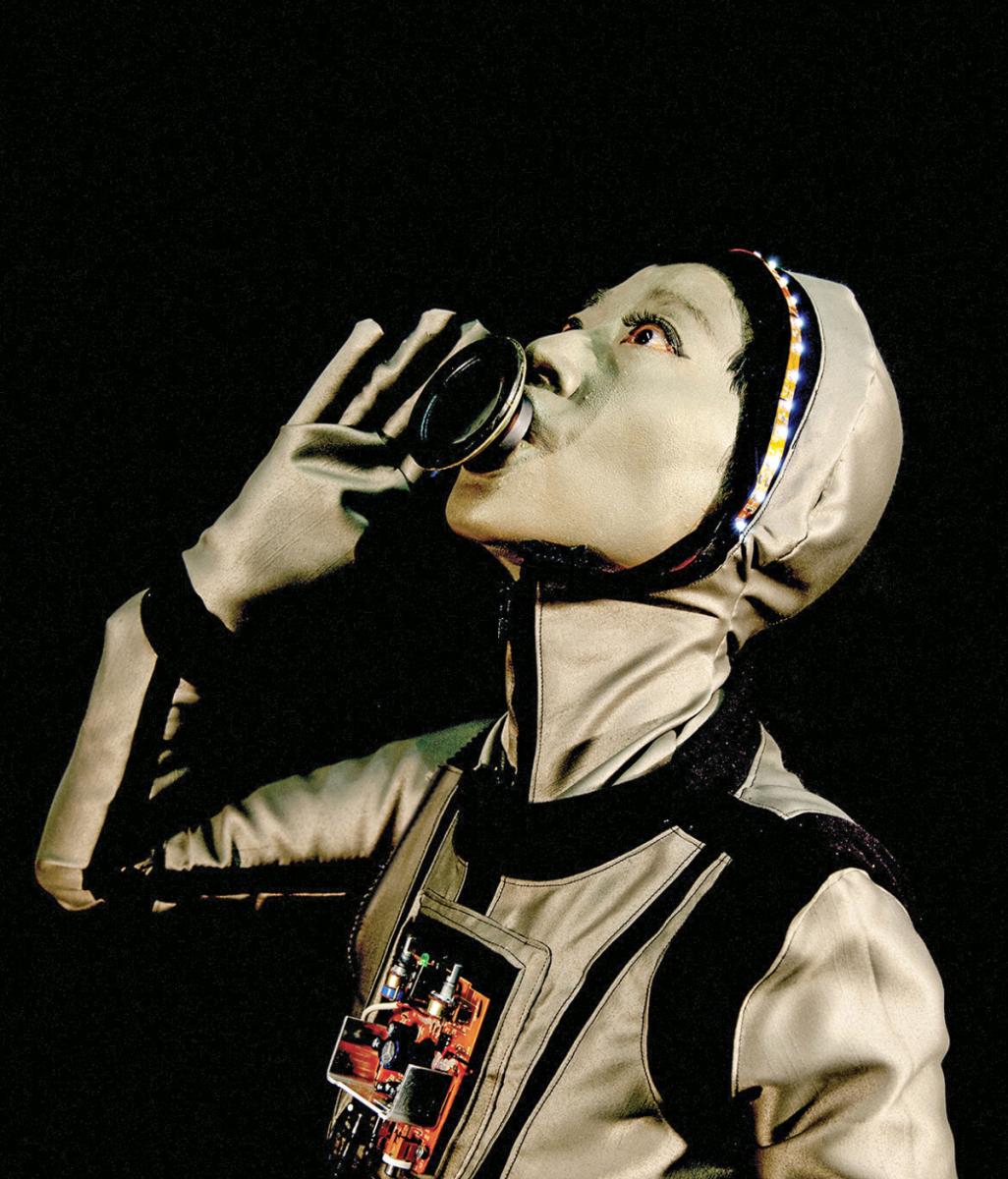
Munk’s imagination was first captured by the program when one of her SF State instructors, adjunct instructor Paul Fresina, dropped by the shop she worked in and mentioned that he’d just been promoted into the job she holds today.
“As he was leaving, I thought, ‘I should ask him if he needs help,’” Munk recalls. “I almost didn’t.”

Fortunately, Munk found the nerve to chase the instructor down. As a result, she was hired as a temp and then became the program coordinator. In 2007, she stepped into the position of manager of the artist-in-residence program.
Each year, a handful of professional artists and students are chosen for the four-month residency. They’re given studio space, a stipend and access to materials. Many SF State students and faculty have participated. Munk strives to make the program welcoming to all kinds of artists, including sculptors, video artists, photographers…and individuals whose art can be harder to categorize. For example, composer Nathaniel Stookey created “Junkestra,” an orchestral arrangement written for instruments fashioned from old flip-flops and other trash.
“I feel so privileged to see how artists respond to basically the same pile of stuff,” Munk says. “They all respond differently.”
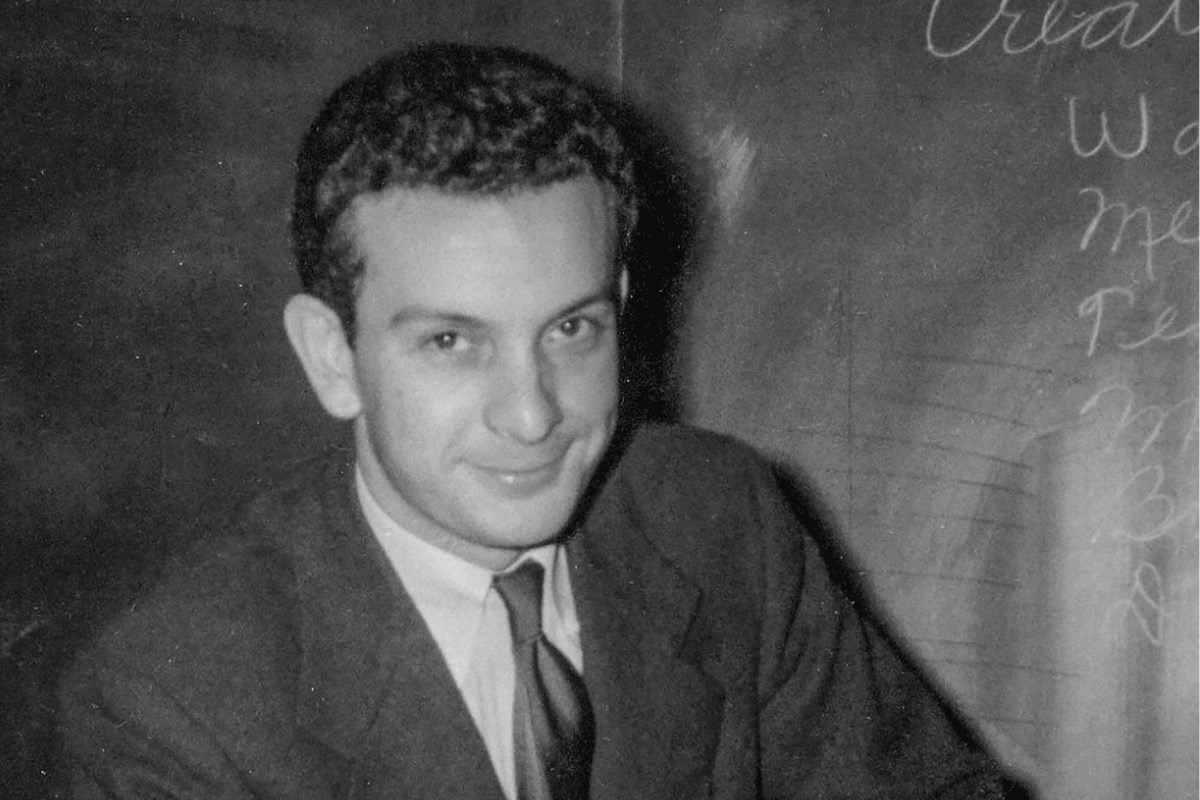
A Good Sport
Jack Anderson (B.A., ’52; M.A., ’53) has always believed in speaking his mind. After graduating with degrees in speech communications, he went on to a long career as the forensics coach at Lowell High School, with future Supreme Court Justice Stephen Breyer among his many students.
So when Anderson noticed an uptick in anti-Semitism in the United States, he knew what to do: make a statement. He did it in a unique way, founding the Jewish Sports Hall of Fame of Northern California in 2006.
One of 14 Jewish Sports Halls of Fame in the U.S., the organization celebrates the contributions Jews have made through sports to the quality of life of all citizens. In addition to celebrating athletes such as San Francisco 49ers players John Frank and Harris Barton, the group inducts non-Jews who have made significant contributions to the community—including former SF State president Robert Corrigan—and offers scholarships to high school athletes, some of whom are of the Jewish faith.
“I believe that sports can be a really unifying thing for a community,” says Anderson, 88. “San Francisco may be as partisan and divided as any place else in the country, but there was great enthusiasm when we thought we would win the Super Bowl. And everybody follows the Warriors. It’s the one thing that every citizen of San Francisco can really identify with.”
Anderson’s own relationship to sports dates to his days at SF State, when he was the western intercollegiate fencing champion and captain of the University’s fencing team. Despite his prowess with a foil, it wasn’t his athleticism that got him recruited by SF State. It was his successes as a high school student in competitive public speaking.
“I won a few events, and a glorious professor came and introduced himself — Wayne Britton. He was in the creative arts department as it was called at the time,” Anderson remembers. “He said to me, ‘I really believe you should come to SF State and get a teaching credential. Our college is second to none in grooming teachers.’”
Obviously, Anderson didn’t choose to debate him.

Game Changer
“I loved video games as a kid—and by that I mean going to play ‘Pong’ at the arcade,” says Amy Hennig.
All those quarters she pumped into the “Pong” machine were a good investment: Over the last three decades, Hennig has established herself as one of the most influential and respected developers in the history of the video game industry. She wrote and directed the “Soul Reaver” and “Legacy of Kain” series and served as creative director for the hugely popular, award-winning “Uncharted” franchise.
Yet the woman who says she “begged for an Atari 2600 for Christmas” when she was 12 didn’t always know that games were her destiny.
“I’ve stumbled forward blindly with every step I’ve made in my career,” she says with a laugh.
When the Bay Area native landed at SF State in the late 1980s with her undergraduate degree in English literature from UC Berkeley, it was to pursue an MFA in film theory and production. Hennig was paying her way through school doing page layouts for textbooks and illustrations for technical manuals when an old high school friend offered her the chance to work on a game for the Atari 7800.
“I did the art and design and animation,” Hennig recalls. “I had one screen’s worth of graphics to play with and three colors. It was primitive.”
Titled “ElectroCop,” the game was never released. Yet it changed how Hennig saw her future — with a little help from SF State. While moonlighting on the Atari project, Hennig was also studying traditional animation with School of Cinema Professor Patricia Amlin. And she was part of a pilot program led by School of Design Professor Jane Veeder that focused on the then-cutting-edge graphics program Wayfront.
“It’s almost like all these things collided and this job that I took in a mercenary way because I needed money for school pointed my life in a different direction,” Hennig says.
Hennig eventually left SF State to take a job with Electronic Arts, one of the most prestigious companies in gaming. After years on various high-profile game projects, last year she accepted a new role as president of the New Media Division at Skydance Media. Her focus now: developing interactive series for emerging streaming platforms.
“What is it that they say? Luck is where preparation meets opportunity?” Hennig says. “That’s always my best advice to people asking, ‘How do you forge a path?’ Be present and be open and be prepared.”
Have News to Include?
Send your submissions with “Class Notes” in the subject line to sfsumag@sfsu.edu(link sends e-mail) or SF State Magazine, Strategic Marketing & Communications, 1600 Holloway Ave., San Francisco, CA 94132. Please include your name, degree information, address and phone number.
Gator Bookshelf
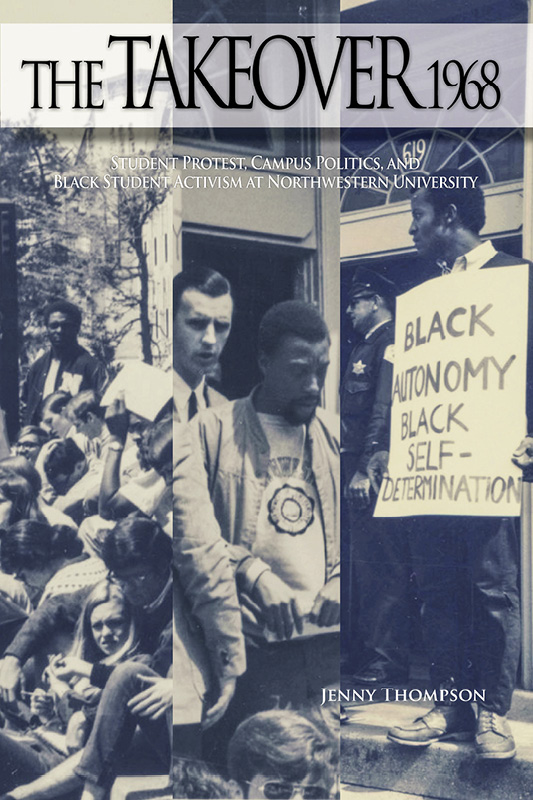
Jenny Thompson (B.A., ’89) is the author of “The Takeover 1968” (Evanston History Center Press). The book documents a 1968 protest by black students at Northwestern University.

Cal Orey (M.A., ’90) has added to her large and successful Healing Powers series of books. The newest entry in the series is “The Healing Powers of Essential Oils: A Complete Guide to Nature’s Magical Medicine,” released in December.
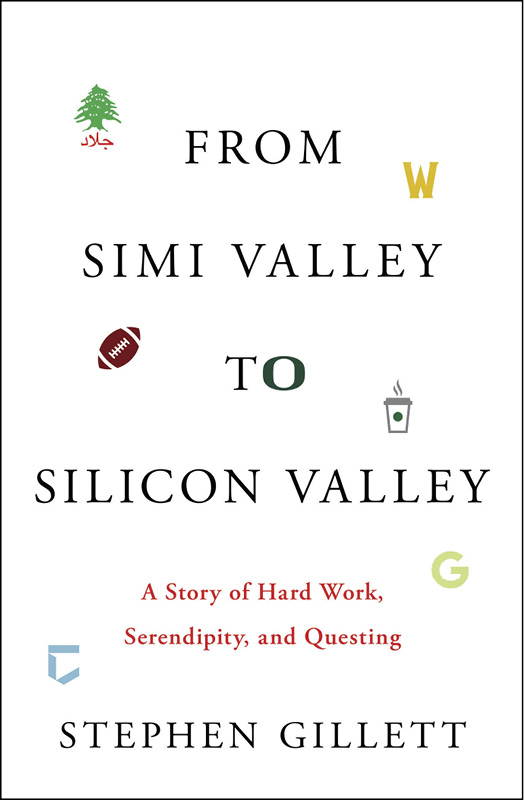
Stephen Gillett (MBA, ’06), co-founder and CEO of the cybersecurity company Chronicle and executive advisor to the CEO of Google, has written a book about his career as a tech trailblazer. From “Simi Valley to Silicon Valley: A Story of Hard Work, Serendipity, and Questing” was released last fall by Lioncrest Publishing.
In Memoriam
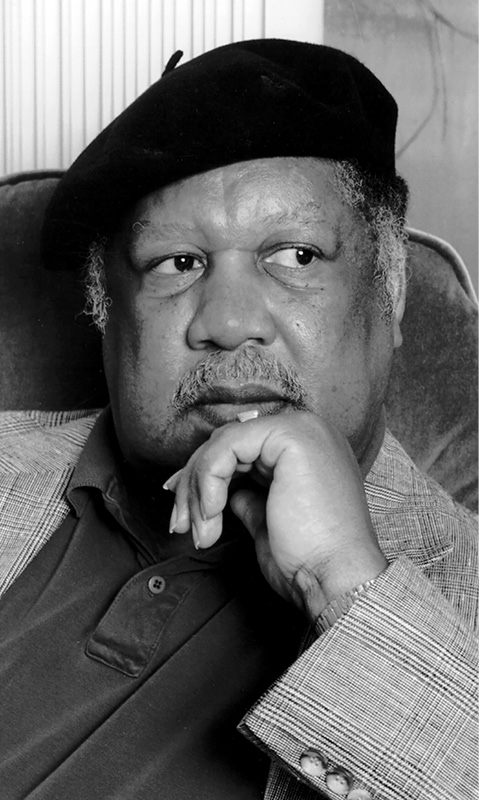
“Why is it that, as a culture, we are more comfortable seeing two men holding guns than holding hands?”
—Earnest J. Gaines
Ernest J. Gaines (B.A., ’57) was born and raised on a Louisiana plantation, going to school only when he wasn’t working in the fields. After leaving the Army in 1955 he enrolled at SF State and began contributing stories to a student literary journal. He went on to write a number of acclaimted books, including “The Autobiography of Miss Jane Pittman” and the National Book Critics Circle Award winner “A Lesson Before Dying.”
Nontsizi Cayou (B.A., ’61; M.A., ’70) was a pioneer in the teaching of Afro-Haitian and jazz dance. Instrumental to the founding of both the dance program at SF State and the African American Art and Culture Complex in the Fillmore District, she was inducted into the University’s Alumni Hall of Fame in 1999.
Carol Morgan Severin (M.S., ’61) joined SF State’s Department of Recreation, Parks and Tourism in 1961. She spent the next 42 years sharing her love of recreation with SF State students. Upon retirement, Severin served for over a decade on the East Bay Regional Park District’s Board of Directors, continuing her work of expanding recreation opportunities and park access to youth, seniors and underrepresented populations.
Wes Wilson (attended ’62) began working at a printing press to help pay for his philosophy classes at SF State. He never completed his degree, but the skills he picked up at his job would serve him well: Just a few years later he began creating concert posters for rock promoter Bill Graham that would define the look of the psychedelic era. In later years, his posters — for seminal bands like the Grateful Dead and the Jefferson Airplane — would be the centerpiece of exhibits at the de Young Museum, the Smithsonian and New York’s Museum of Modern Art.
Roy Loney (attended ’64-’69) was the charismatic frontman of rock outfit the Flamin’ Groovies, which helped inspire generations of garage rock and punk bands with its stripped-down, high-octane sound. He was planning to tour Europe with the band when he suffered a fall at San Francisco International Airport last spring. He never fully recovered and passed away in December.
Dean A. Steuer (B.A., ’65) was a player on SF State’s football squad when the University won the Far West Conference Championship in 1963. He refereed high school football for decades. He succumbed to neurological disease on Nov. 18, 2019.
Sharon Peterson (B.A., ’69) passed away July 31, 2019, after a battle with pancreatic cancer. Peterson had been living in Merritt Island, Florida, with her husband Richard.
Esther Scott (B.A., ’81) parlayed her theater training at SF State into memorable roles in high-profile films like “Boyz N the Hood,” “The Craft,” “Austin Powers: Goldmember” and “Dreamgirls.” She was also a familiar face on television, popping up on such shows as “Martin,” “Sister, Sister” and “The Wayans Bros.”
Ed Arnow (MBA, ’83) was a familiar face (and voice) for years in San Francisco broadcasting. His decades-long career as a newsman took him to KNBC, KRON, KGO and KPIX (where he was working when he won two Emmy Awards for reporting). He passed his skills and passion along to students as a journalism instructor at UC Berkeley and Ankara University in Turkey.
We Are Stronger Together
We’d like to thank you for staying connected to San Francisco State University. Over the years, many of our generous supporters have included the university in their estate plans via a gift in a will or trust or by naming San Francisco State as the beneficiary of a retirement or financial account. Thanks to the generosity of our planned giving donors we have been able to:
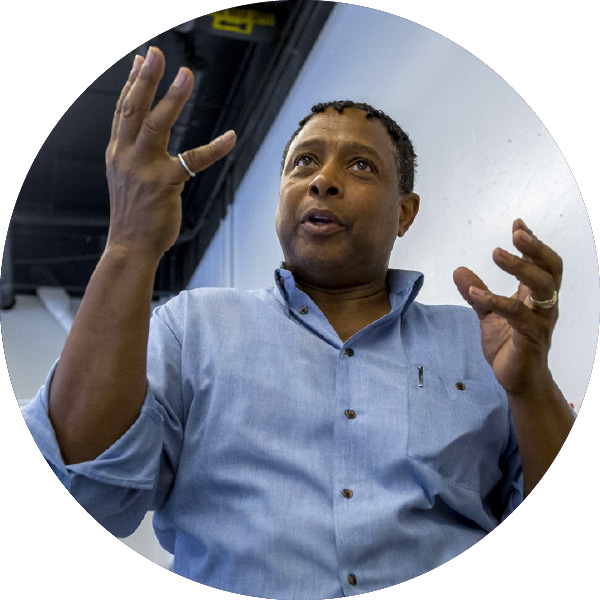
Provide funds to bolster academic programs and faculty development

Offer scholarships to students who were the first in their families to earn a university degree

Enhance the Guardian Scholars Program, which supports former foster care youth

Access cutting-edge technologies that ensure our students are prepared for a competitive job market
The support of our alumni, friends, community and planned giving donors has made us stronger — and it’s that strength that sustains us. Thank you for your commitment to SF State and for investing so generously in our future.
giftplan@sfsu.edu | 415.338.1042 | sfsu.giftlegacy.com